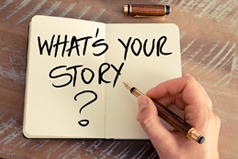Coming to Believe:
Working a Twelve Step
program when youre not sure about God
The Spirit of Our Twelve Step Journey
Some of us
came into CoDA eager to begin our recovery only to trip immediately on the word
God. We were told that CoDA is not a religious program; that we didnt have to
believe in any particular version of God, that we could choose a Higher Power
of our own understanding, but still that word God was everywhere. God grant
me the serenity…, Admitted to God… Humbly asked God…, as
we remain open to God’s will for us…, …to be that which God intended….
Although we were beginning to accept that we ourselves didnt
have the answer to our misery, it was still hard for some of us to swallow the
idea that God was the answer. We may have just quietly refused to say that
word. Or perhaps we grumbled that CoDA should do away with the word God
altogether.
If we were still resisting the God talk, we were still focusing
on what was wrong outside of us rather than inside of us. We were still
practicing our need to be right, our need to have others change in order to
provide us with our sense of well-being. In short, we were still practicing our
codependency.
Allow time for your
spirituality to develop. It unfolds by itself as a result of working the Steps.
Co-Dependents Anonymous
Newcomers Handbook
Although we
may have found it difficult to embrace the concept of a Higher Power as we began
our recovery, we decided not to let that chase us away.
Starting a Twelve Step program of recovery required
honesty, openness, willingness, and no small amount of courage, but what did we
have to lose? We had reached a point where we were willing to try anything,
maybe even the God stuff.
The point was, that in the
beginning of our time in CoDA, we became willing to entertain the possibility
that there was Something that could do for us what we could not do for
ourselves.
Co-Dependents Anonymous
Twelve-Step Handbook
Over time, those of us who stuck with the program began to find a
way to deal the word God without feeling compelled to follow someone elses
definition or to make them follow ours. We came to see the word God as a sort
of verbal shorthand for power-greater-than-myself-of-my-own-understanding-that-restores-me-to-sanity.
Some old timers suggested we think of it as Good Orderly Direction.
As we began to develop a concept of our own personal Higher Power, we found it
no longer mattered what others called it. We found that what mattered was our
own personal willingness to form a relationship with something greater than
ourselves.
Although a relationship with a Higher Power is the foundation of
our recovery in CoDA, developing that relationship was a struggle for many of
us. Fortunately we were not required to believe anything to get started. All we
needed was an open mind.
Getting to know our own Higher Power
Building our own concept of a
Higher Power…our concept of a safe being can begin to take shape.
Co-Dependents Anonymous
The CoDA Book-Chapter Two
One thing
we found helpful was learning about and letting go of those things we had used
as our higher powers in our codependency. We had sought refuge in other people,
in addictions, and in compulsively trying to control the world around us. We
have had to accept that those behaviors cannot provide us with a true, lasting
sense of security and well-being.
Another
thing we found helpful was to explore the concept of faith or trust.
Trust did not come easy for most of us. For years we had put our trust in other
people or in ourselves to make things right. Routinely, others let us down, or
our own efforts failed. The program asked us to trust in a Higher Power, but we
were not sure how. How could we really believe that a Higher Power would take
care of us? We learned that faith was possible if we pointed our old thinking in
a new direction.
Most of us have faith that
others will discover our unworthiness. We have faith that we deserve very little
joy or peace. We
have faith in the negative outcome and are rarely
surprised when others disappoint us. In CoDA we can learn to embrace this faith
we have developed and simply focus it in another direction toward our
recovery.
Co-Dependents Anonymous
Making Choices
Then came
the task of deciding who or what exactly we could call our Higher Power.
The CoDA
Book, Chapter Two, suggests we make a list of characteristics that our Higher
Power has or that we would like our Higher Power to have. The Steps may have
helped us begin our list. We understood that our Higher Power would be something
greater than ourselves that we could trust to restore our sanity (Step Two) and
to care for our lives (Step Three). It would be something we could trust with
our secrets (Step Five) and that would remove our shortcomings (Step Seven). It
would be something we could deliberately make contact with for wisdom and
guidance (Step Eleven).
The forms
we have chosen for our Higher Power are as varied as the individuals in CoDA.
Some of us
chose a beloved ancestor who had passed away.
For others,
a mystical being such as a wizard, goddess, angel, or mythical animal provided a
Higher Power
Some of us
used the collective wisdom of our home group as our Higher Power or the Twelve
Steps themselves.
Some of us
sought to strengthen our relationship with the Higher Power of our religion.
Others
sought to develop a relationship with the Higher Power of a different religion.
Some of us
turned to the power of nature or the forces of life or the universe.
For some of
us our Higher Power was a combination of several elements.
We learned
that the exact form of our Higher Power was not important. We were free to try
out different forms over time and to choose what worked best for us. We found
that just being willing to explore the idea of a Higher Power began to change
our lives.
As we
became willing to stop incessantly trying to control the people and things
around us, we felt less burdened. As we became willing to trust in the wisdom of
a Higher Power, we began to experience our lives differently. Things that used
to bother us no longer seemed so complicated. Life became less of a struggle.
For many of
us, coming to believe in a Higher Power required determined perseverance in the
face of our own doubts and fears. Fortunately, ours is a program of progress,
not perfection. We discovered that we could keep working the program without
having an absolute conclusion or an exact answer as to what Higher Power is. All
that was required was willingness to let go of our resistance and try to form an
idea of a Higher Power that made sense to us.
The miracles
of recovery unfold. Loving relationships with our Higher Power, ourselves and
others improve and evolve. We begin to feel more assured that our deepest needs
will be cared for.
Co-Dependents Anonymous
The CoDA Book, Chapter Two
Step Two
assured us we would come to believe that a power greater than ourselves could
restore our sanity. Step Eleven reminded us that we would continue to seek to
improve our conscious contact with that power throughout our recovery. The Steps
guide us as we grow and evolve in our program, and our concept of our Higher
Power is free grow and evolve with us.




Recent Comments